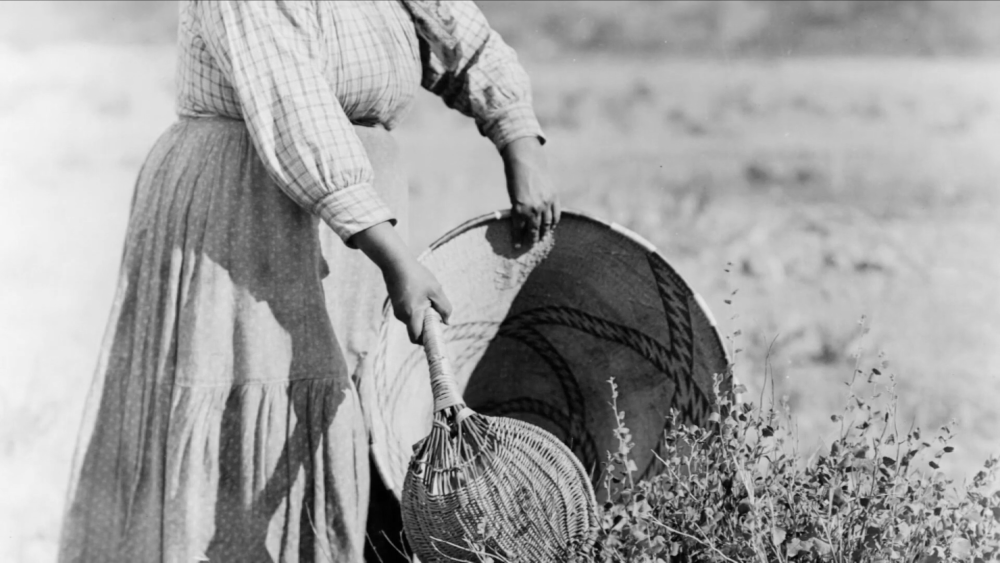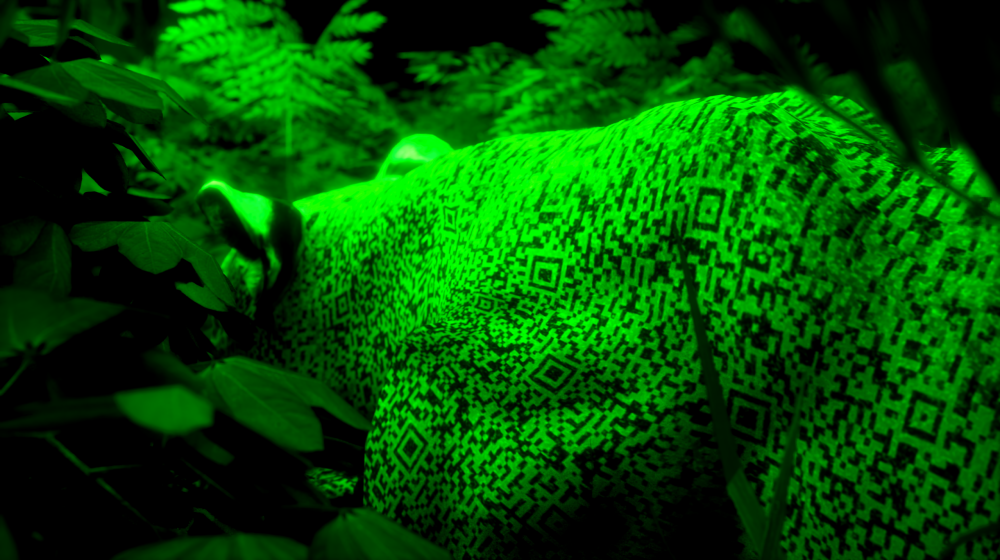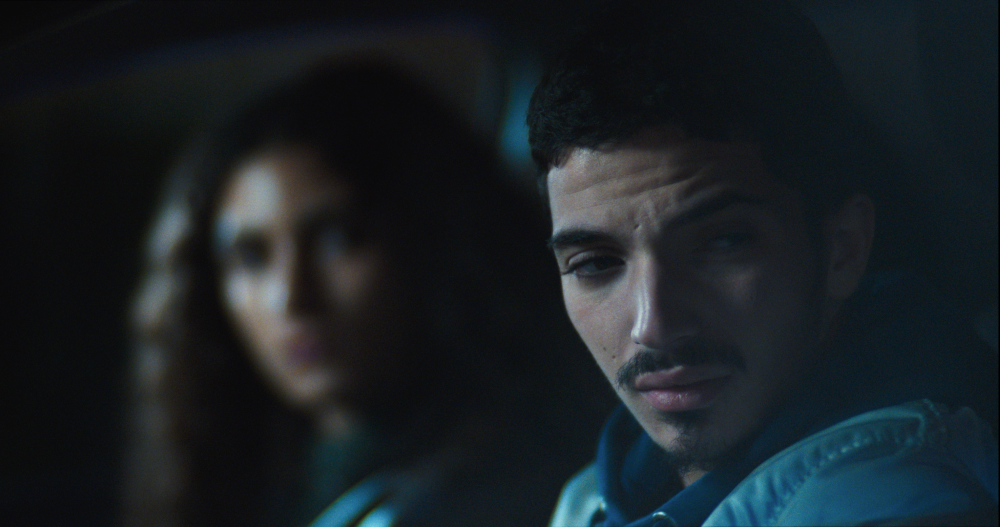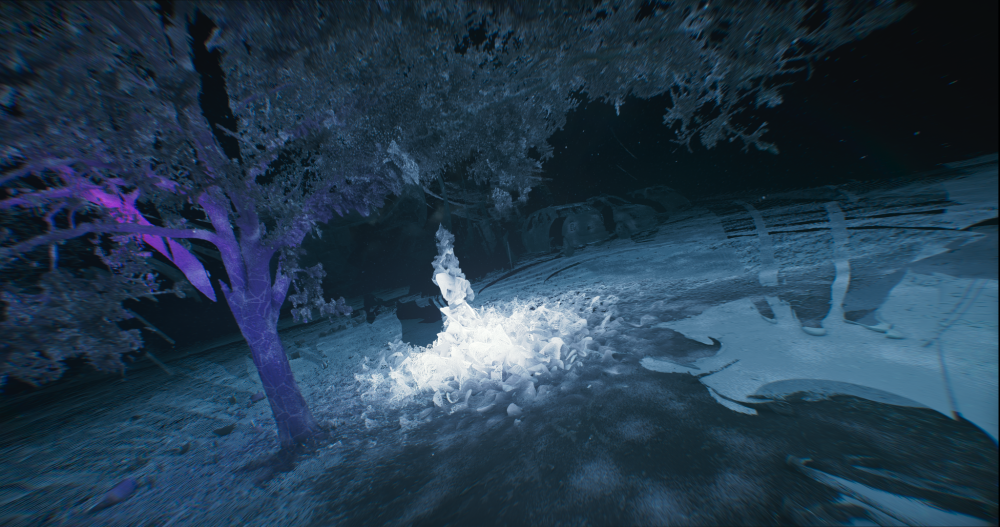
Jocelyne Saab (1948–2019) was one of the most multifaceted filmmakers of her generation. Belonging both to the world of journalism and to the second wave of Arab feminists, for whom visibility and language both functioned as “poetic testimony” more than narration, Saab dedicated approximately fifteen documentaries to the subject of the civil war in Lebanon (1975–1990): New Crusader in the Orient, 1975; Lebanon in Turmoil, 1975; Children of War, 1976; South Lebanon, History of a Sieged Village, 1976; Beirut, Never Again, 1976; For a Few Lives, 1976; Letter From Beirut, 1978; Beirut, My City, 1982; The Lebanese, Hostages of their City, 1982; The Ship of Exile, 1982; Lebanon, State of Shock, 1982; The Woman Killer, 1988; as well as one fiction film: A Suspended Life, 1985.
Saab became a reporter and television presenter after studying political economy in her own city of Beirut and in Paris, before the war; and turned defiantly to independent filmmaking and the construction of images in Beirut when the war began in 1975. Attuned, like her friend and collaborator Etel Adnan, to different tools of bearing witness, Saab created her own documentary of dissidence and solidarity. Alongside the long-neglected and mostly undistributed work of Heiny Srour, Assia Djebar, Mai Masri, Atteyat Al-Abnoudy, and other female filmmakers of the Maghreb and Mediterranean Arab region, Saab’s oeuvre clears a path for artistic representation in times of ongoing, overwhelming emotion and unholy Israeli occupation and land-seizure.
Over the course of two nights, Dec. 18–19, Rotations presents THE GROUNDBREAKING JOCELYNE SAAB, a program screening at Now Instant Image Hall in Los Angeles. Featuring all three documentaries in Saab’s THE BEIRUT TRILOGY (1976, ‘78, ‘82) as well as her narrative feature A SUSPENDED LIFE (1985)—accompanied by TRACES (2023), a new, stunning film from Lebanese–Canadian experimental filmmaker and archivist Chantal Partamian—we hope to cast light on the realities of a region that once had to throw its already multilingual artists and writers, “like a destroyed building,” in all directions (EA).
With gratitude to Association Jocelyne Saab and Mathilde Rouxel.
Beirut, Never Again
The year 1976 marks the beginning of Beirut’s Calvary. With a child’s eyes, the filmmaker follows for six months the daily destruction of the city’s walls. Every morning, between 6 and 10 a.m., she roams Beirut while the militia on both sides rest from their night of fighting. (MR)
Full credits:
Director: Jocelyne Saab, Commentary: Etel Adnan, DOP: Hassan Naamani, Jocelyne Saab, Editor: Philippe Gosselet, Voice-over (English version): Jocelyne Saab, Voice-over (French version): Jörg Stocklin, Production: Jocelyne Saab, Copyright: Nessim Ricardou-Saab.
Letter from Beirut
Imagine traveling dozens of countries in less than five hours: Nepal, Nigeria, Norway, France—and Lebanon, its fragmented identity, fragmented memory?
Three years after the start of the civil war, the filmmaker returns to her city for several months. Living between this war-torn country and a country in peace, she tries to readapt to daily life in Beirut. Public transport in the city no longer exists, but the filmmaker gets an old bus up and running, provoking a disconcerting return to normality in this city at war: people climb onto the bus, which they see as a place of security. (MR)
Full credits:
Director: Jocelyne Saab, Commentary: Etel Adnan and Jocelyne Saab, DOP: Olivier Guéneau, Sound: Mohamed Awad, Editor: Philippe Gosselet, Production: Jocelyne Saab, Copyright: Nessim Ricardou-Saab.
Beirut, My City
In July 1982, the Israeli army laid siege to Beirut. Four years earlier, Jocelyne Saab saw her 150-year-old childhood home go up in flames. She asked herself: When did all this begin? Every place becomes a historical site and every name a memory. (MR)
Full credits:
Director: Jocelyne Saab, Commentary: Roger Assaf, DOP: Jocelyne Saab, Assistant: Mirwan Khoury, Editor: Philippe Gosselet, Music: Rafic Boustani, with the participation of: Hassan Naamani, Jean-Marie Anglès, Dina Haidar, Boutros Rouhana, Mixing: Paul Bertault, Lab: AUDITEL, Production: Jocelyne Saab, Copyright: Nessim Ricardou-Saab.
Please note: seating is limited. Box Office opens thirty minutes prior to the listed showtime. Online ticket sales will be honored up until 15 minutes after the scheduled showtime. In-store ticket purchases are subject to availability, first-come, first-served. We do not operate a standby list.




